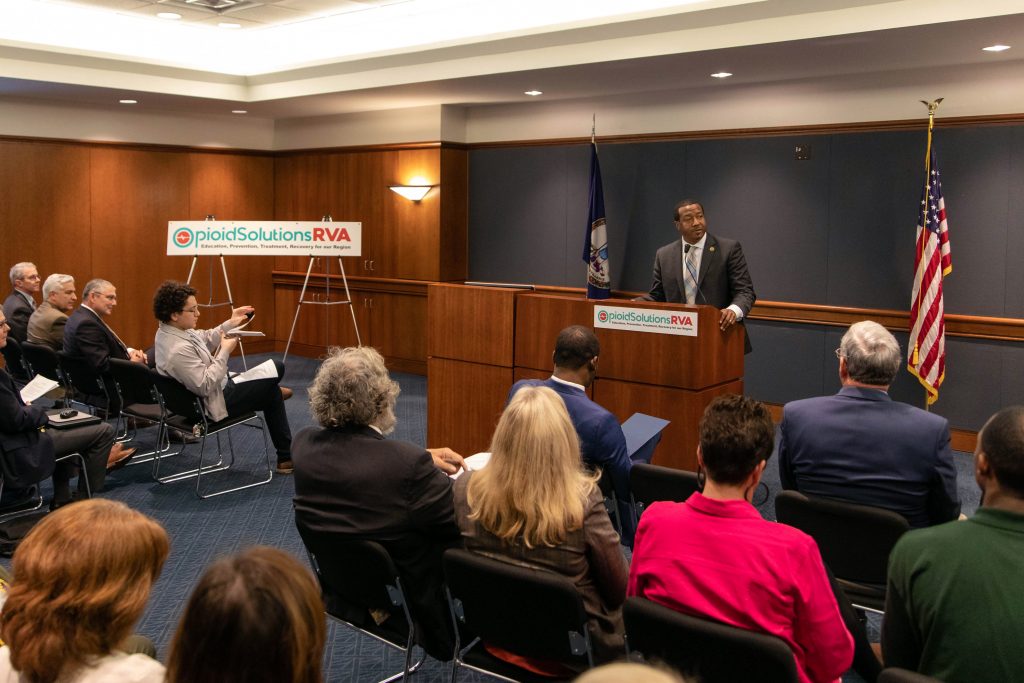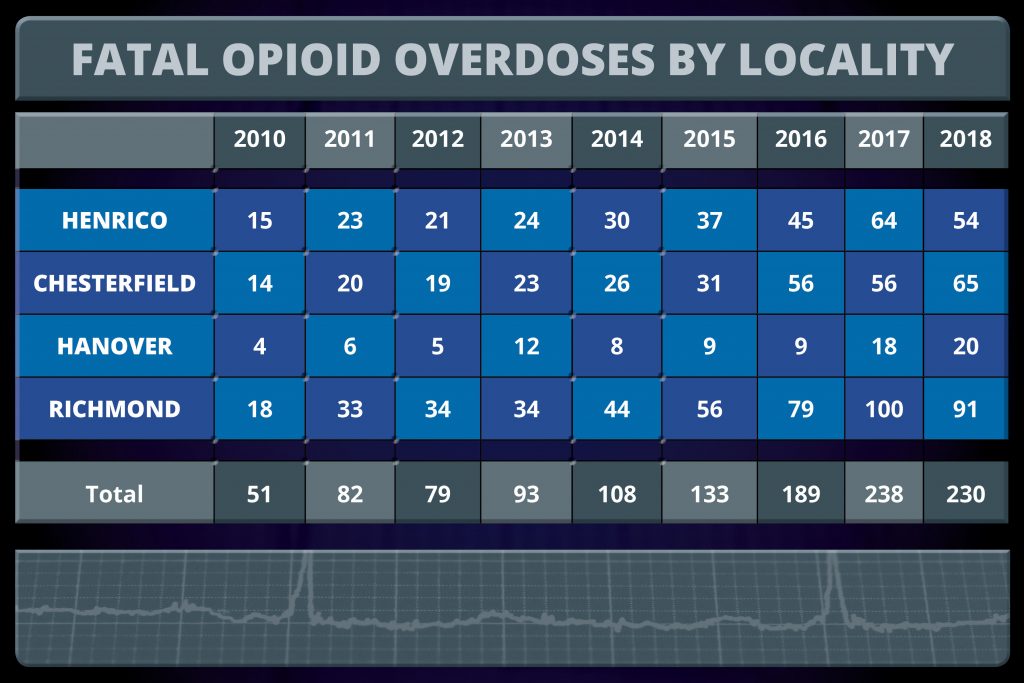With a website and messages on social media, radio, television and billboards, Henrico County and its neighboring localities are working to stem the alarming rise of opioid overdoses and deaths.
Henrico, Chesterfield County, Hanover County and the city of Richmond have united as Opioid Solutions RVA to raise awareness of the epidemic and to promote resources and support to aid recovery.
Elected officials from the localities in February announced the effort, along with a website — OpioidSolutionsRVA.com — and a yearlong marketing campaign.
Opioid Solutions RVA complements initiatives already underway in Henrico, and it represents an understanding that the opioid crisis transcends municipal boundaries, said Laura S. Totty, executive director of Henrico Area Mental Health & Developmental Services.
“The folks that need help and are overdosing have no recognition of jurisdictional lines,” she said. “We needed to be able to respond to the crisis together. If we didn’t, we’d effectively put up barriers to treatment. We also need to work together to identify the problem and focus on solutions.
“The challenge is, how do we get past the point of understanding there’s a problem and people are dying to getting people back to work and being productive members of society?”
Maintained by the localities, OpioidSolutionsRVA.com provides a regionally-focused clearinghouse of information about opioids as well as services available for treatment, recovery and prevention.
It directs those needing immediate help or recovery support to resources, and it offers practical guidance, for example, on discussing pain-relieving alternatives with a doctor as well as what parents can do if their child is suspected of using drugs.

In addition, the website highlights special programs and initiatives, such as drug take-back drives and classes on the administration of naloxone, which can be used to revive someone following a suspected opioid overdose.
The website is being funded through a grant received by the Virginia Department of Behavioral Health and Developmental Services.
The campaign’s first public service announcement underscores the addictive and potentially deadly nature of opioids and explains that they are often known by other names, including Codeine, Vicodin, Percocet, painkillers and pills.
A second announcement offers hope to those struggling with addiction and encourages them to seek help in their recovery. Additional messages are planned throughout the campaign, which is supported with $100,000 provided by the four localities.
The campaign “hits people at lots of different levels — billboards, radio, social media public service announcements,” Totty said. “It’s really targeting different groups of people, and it’s something no single locality would have been able to do on its own because of the cost.”
As part of Opioid Solutions RVA, the localities plan to support a public forum that will be held later this year to promote a deeper understanding of the issue. Opioid addiction was declared a public health emergency in Virginia in 2016.
The four localities had a combined 230 fatal opioid overdoses in 2018 — a more than four-fold increase from 51 opioid-related deaths in 2010, according to data from the Virginia Department of Health. The region’s total hit a high of 238 in 2017, one year after opioid addiction was declared a public health emergency in Virginia.
Totty said she believes keys to overcoming the crisis will include starting antidrug education at a younger age and eliminating the stigma associated with addiction.
“We have to be able to, in a nonjudgmental and nonaccusatory way, be able to explain what addiction is doing to people and change behavior,” she said. “It’s the little steps and trying to raise awareness.”
Henrico first targeted the opioid issue in 2016 by creating a multiagency task force and setting aside $200,000 to address the issue. The county’s efforts also have included free public classes on the administration of naloxone, the creation of the BounceBackHC.com website and the start of ORBIT (Opiate Recovery By Intensive Tracking), a multistep program developed by the Sheriff’s Office to help inmates overcome addictions to opiates.
Henrico and its regional partners joined forces in October 2017 to present Revive RVA: Regional Solutions to the Opioid Crisis, a daylong summit at the Greater Richmond Convention Center that featured keynote speakers, breakout sessions, panel discussions, a resource fair and naloxone training.








